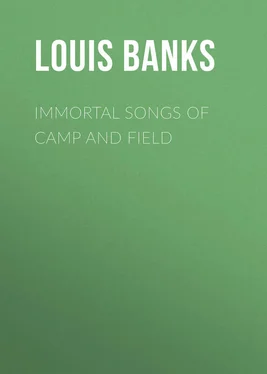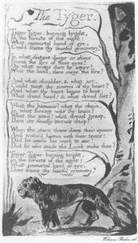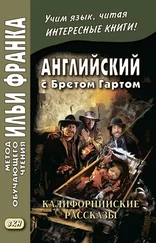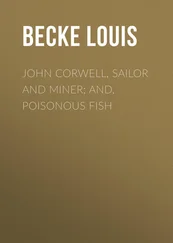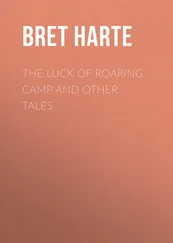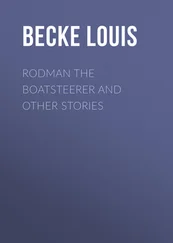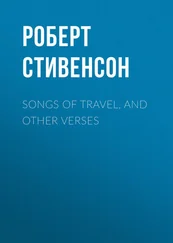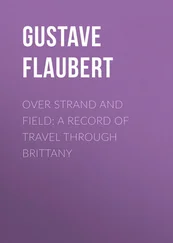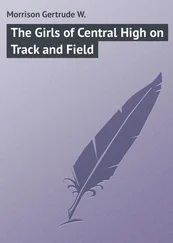Louis Banks - Immortal Songs of Camp and Field
Здесь есть возможность читать онлайн «Louis Banks - Immortal Songs of Camp and Field» — ознакомительный отрывок электронной книги совершенно бесплатно, а после прочтения отрывка купить полную версию. В некоторых случаях можно слушать аудио, скачать через торрент в формате fb2 и присутствует краткое содержание. Жанр: foreign_antique, foreign_prose, на английском языке. Описание произведения, (предисловие) а так же отзывы посетителей доступны на портале библиотеки ЛибКат.
- Название:Immortal Songs of Camp and Field
- Автор:
- Жанр:
- Год:неизвестен
- ISBN:нет данных
- Рейтинг книги:5 / 5. Голосов: 1
-
Избранное:Добавить в избранное
- Отзывы:
-
Ваша оценка:
- 100
- 1
- 2
- 3
- 4
- 5
Immortal Songs of Camp and Field: краткое содержание, описание и аннотация
Предлагаем к чтению аннотацию, описание, краткое содержание или предисловие (зависит от того, что написал сам автор книги «Immortal Songs of Camp and Field»). Если вы не нашли необходимую информацию о книге — напишите в комментариях, мы постараемся отыскать её.
Immortal Songs of Camp and Field — читать онлайн ознакомительный отрывок
Ниже представлен текст книги, разбитый по страницам. Система сохранения места последней прочитанной страницы, позволяет с удобством читать онлайн бесплатно книгу «Immortal Songs of Camp and Field», без необходимости каждый раз заново искать на чём Вы остановились. Поставьте закладку, и сможете в любой момент перейти на страницу, на которой закончили чтение.
Интервал:
Закладка:
“When our land is illumined with liberty’s smile,
If a foe from within strike a blow at her glory,
Down, down with the traitor who dares to defile
The flag of her stars and the page of her story!
By the millions unchained
Who their birthright have gained
We will keep her bright blazon forever unstained;
And the star-spangled banner in triumph shall wave
While the land of the free is the home of the brave.”
The air selected under such interesting circumstances as we have described — Anacreon in Heaven , – is that of an old English song. In the second half of the eighteenth century a jovial society, called the “Anacreontic,” held its festive and musical meetings at the “Crown and Anchor” in the Strand. It is now the “Whittington Club;” but in the last century it was frequented by Doctor Johnson, Boswell, Sir Joshua Reynolds and others. One Ralph Tomlinson, Esq., was at that time president of the Anacreontic Society, and wrote the words of the song adopted by the club, and John Stafford Smith set them to music, it is claimed to an old French air. The song was published by the composer, and was sold at his house, 7 Warwick Street, Spring Garden, London, between the years 1770-75. Thus the source of the music so long identified with this inspiring song is swallowed up in the mystery of the name of Smith.
The flag of Fort McHenry, which inspired the song, still exists in a fair state of preservation. It is at this time thirty-two feet long and of twenty-nine feet hoist. In its original dimensions it was probably forty feet long; the shells of the enemy, and the work of curiosity hunters, have combined to decrease its length. Its great width is due to its having fifteen instead of thirteen stripes, each nearly two feet wide. It has, or rather had, fifteen five-pointed stars, each two feet from point to point, and arranged in five indented parallel lines, three stars in each horizontal line. The Union rests in the ninth, which is a red stripe, instead of the eighth, a white stripe, as in our present flag. There can be no doubt as to the authenticity of this flag. It was preserved by Colonel Armstead, and bears upon its stripes, in his autograph, his name and the date of the bombardment. It has always remained in his family and in 1861 his widow bequeathed it to their youngest daughter, Mrs. William Stuart Appleton, who, some time after the bombardment, was born in Fort McHenry under its folds. She was named Georgians Armstead for her father, and the precious flag was hoisted on its staff in honor of her birth. Mrs. Appleton died in New York, July 25, 1878, and bequeathed the flag to her son, Mr. Eben Appleton, of Yonkers, New York, who now holds it.
The Star-Spangled Banner has come out of the Spanish War baptized with imperishable glory. Throughout the war it has been above all others, in camp or on the battlefield, the song that has aroused the highest enthusiasm. During the bombardment of Manila the band on a British cruiser, lying near the American fleet, played The Star-Spangled Banner , thus showing in an unmistakable way their sympathy with the American cause. In the trenches before Santiago it was sung again and again by our soldiers and helped, more than anything else, to inspire them to deeds of heroic valor. Once when the army moved forward in the charge, the man who played the E-flat horn in the band left his place and rushed forward with the soldiers in the attacking column. Of course the band’s place is in the rear. But this man, unmindful of everything, broke away and went far up the hill with the charge, carrying his horn over his shoulder, slung with a strap. For a time he went along unobserved, until one of the officers happened to see him. And he said to him, “What are you doing here? You can’t do anything; you can’t fight; you haven’t any gun or sword. This is no place for you. Get down behind that rock.” The soldier fell back for a minute, half dazed, and feeling the pull of the strap on his shoulder cried out in agony: “I can’t do anything, I can’t fight.” And so he got down behind the rock. But almost instantly he raised his horn and began to play The Star-Spangled Banner . They heard him down in the valley, and immediately the band took it up, and in the midst of those inspiring strains the army charged to victory.
HAIL COLUMBIA
Hail, Columbia! happy land!
Hail, ye heroes! heaven-born band!
Who fought and bled in Freedom’s cause,
Who fought and bled in Freedom’s cause,
And when the storm of war was gone,
Enjoy’d the peace your valor won.
Let independence be our boast,
Ever mindful what it cost;
Ever grateful for the prize,
Let its altars reach the skies.
Firm, united, let us be,
Rallying round our Liberty;
As a band of brothers join’d,
Peace and safety we shall find.
Immortal patriots! rise once more:
Defend your rights, defend your shore:
Let no rude foe, with impious hand,
Let no rude foe, with impious hand,
Invade the shrine where sacred lies
Of toil and blood the well-earn’d prize.
While offering peace sincere and just,
In Heaven we place a manly trust,
That truth and justice will prevail,
And every scheme of bondage fail.
Sound, sound, the trump of Fame!
Let WASHINGTON’S great name
Ring through the world with loud applause,
Ring through the world with loud applause;
Let every clime to Freedom dear,
Listen with a joyful ear.
With equal skill, and Godlike power,
He govern’d in the fearful hour
Of horrid war; or guides with ease,
The happier times of honest peace.
Behold the chief who now commands,
Once more to serve his country stands,
The rock on which the storm will beat;
The rock on which the storm will beat.
But, arm’d in virtue firm and true,
His hopes are fix’d on Heaven and you.
When hope was sinking in dismay,
And glooms obscured Columbia’s day,
His steady mind, from changes free,
Resolved on death or liberty.
Joseph Hopkinson, like Francis Scott Key, the author of The Star-Spangled Banner , was also a lawyer. He commenced the practice of law in Easton, Pennsylvania, but soon removed to Philadelphia, where he acquired high distinction at the bar. He was four years a member of Congress, and was afterward appointed judge of the United States District Court, an office held by his grandfather under the British Crown before the Revolutionary War, and to which his father had been chosen on the organization of the United States Judiciary in 1789. He retained this office until his death in 1842.
Mr. Hopkinson was still a young man, only twenty-eight years of age, when he wrote the song which will make his name honored as long as American liberty is remembered. It was in the summer of 1798, when a war with France was thought to be inevitable. Congress was in session in Philadelphia, discussing the advisability of a declaration of war, and many acts of hostility had actually occurred. England and France were at war already, and the people of the United States were divided into factions for the one side or the other. One party argued that policy and duty required Americans to take part with republican France; the other section urged the wisdom of connecting ourselves with England, under the belief that she was the great conservator of modern civilization, and that her triumph meant the rule of good principles and safe government. Both belligerents had been careless of our rights, and seemed to be forcing us from the just and wise policy of Washington, which was to maintain a strict and impartial neutrality between them. The prospect of a rupture with France was exceedingly offensive to that portion of the people who hoped for her success, and the violence of party spirit ran to the highest extreme.
Читать дальшеИнтервал:
Закладка:
Похожие книги на «Immortal Songs of Camp and Field»
Представляем Вашему вниманию похожие книги на «Immortal Songs of Camp and Field» списком для выбора. Мы отобрали схожую по названию и смыслу литературу в надежде предоставить читателям больше вариантов отыскать новые, интересные, ещё непрочитанные произведения.
Обсуждение, отзывы о книге «Immortal Songs of Camp and Field» и просто собственные мнения читателей. Оставьте ваши комментарии, напишите, что Вы думаете о произведении, его смысле или главных героях. Укажите что конкретно понравилось, а что нет, и почему Вы так считаете.
